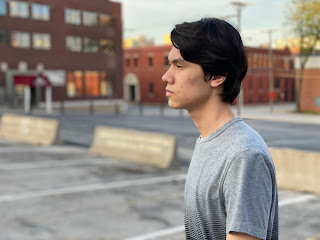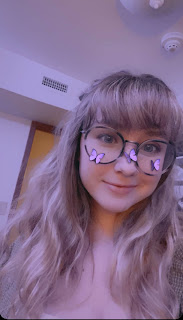Intersectionality
Last week kicked my butt.
I was dealing with a lot of school, extracurricular activities and small social events here and there. Covid-19 has changed my life quite a bit but things definitely aren't any slower.
Sometimes, it's hard for me to sit down and think for a minute. I'm so distracted all the time and any down time I have I devote to my phone, a Netflix series or a video game. Recently, I started talking to a friend again who I hadn't talked to in almost two years. She's Vietnamese like me and can speak the language really well. We relate in some ways and differ in others but it was fun comparing her experience as a young Vietnamese woman to mine, a young half-Vietnamese man. It got me thinking about some of the identities that affect me most--I am a straight, biracial, middle class, able-bodied Christian male.
In many ways I am privileged. Being a male has its perks and I support other men. My sex affects almost every single aspect of my life from the way I go about my day, how others perceive me, and how the world is set up around me/for me. My sexuality is not as prevalent but I have never experienced any awkwardness or discrimination for being straight and there are more accommodations for people like me than someone, for example, in the LGBTQ+ community. The same goes for my socioeconomic status. Society and politics always acknowledge the middle class and take issues that concern us into account. My race and physical status play a smaller role in my life. They don't come up as often but in terms of my race I find myself part of two cultures while simultaneously being part of both. I usually choose to be part of the majority or minority depending on the situation and since I am able-bodied, things are set up to be comfortable for people like me.
It's interesting that almost every single one of these identities were not really a choice. I found myself in these categories just being me and I expect that this is true for most other people too. Not only until the past few years have I realized how much these aspects affected how I was perceived and treated. As a straight middle class male, I have experienced little negative treatment by individuals and society because laws, consumer products, and employment were all made with people like me in mind. After doing some of my own research and hearing testimonials of individuals who have not or still are not represented in these areas, I have become more aware of my own circumstance.
In the US things are changing slowly but surely concerning race and class. For a long time straight white males had the most advantages solely based on their identities but now there are many Affirmative Action programs to aid less fortunate individuals, more support for women to enter STEM fields, and I think most significant, platforms for all types of people to speak and be heard. My only worry is that when we begin to lift up everyone else we risk pushing straight white men down. I hope that doesn't happen and for the most part it hasn't yet.
I have felt out of place in the past because of the other parts of my identity I have yet to go into more detail about. For instance, some of my beliefs and values are largely influenced by my religion, and many of these ideas are contrary to what society has deemed "okay" or "the standard". It puts me in an uncomfortable position because I have to decide whether I want to side more with my own values or if it would be easier to jump on the bandwagon and follow others. I experience a similar thing due to my race. I sometimes have felt left out of conversations or friend groups because I am not fully integrated into white culture. My background makes me different and therefore I can't always relate to those around me. A few general examples of this are certain types of music, celebrities, and food that I don't relate to as strongly as my white friends.
I want to be clear; I am not ashamed of who I am in any way and I don't think anyone should be. I'm glad that I've become more aware of my intersectionality so I can understand why people are treated so differently. As more people become educated about this topic we can develop more ways to support people from a variety of backgrounds and situations.






Comments
Post a Comment